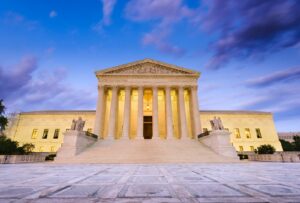House Democrats recently introduced the Protecting Our Democracy Act with the intention of restoring checks and balances, preventing abuses of presidential power, and strengthening government accountability and transparency. Rep. Nancy Pelosi and colleagues unveiled the legislation on September 22nd to expand on the omnibus anti-corruption bill, the For the People Act of 2019 (HR 1).
The new bill is designed to challenge presidential abuses of power and provide Congress with additional powers to check the executive branch in response to the Trump administration. Specifically, it is meant to limit pardons for close associates of the President, police campaign contact with foreign nationals, and strengthen enforcement mechanisms for the Hatch Act, which prohibits federal employees from engaging in political activities while on the job.
In contrast, the For the People Act of 2019 was intended to address broader issues of government accountability and electoral reform. It was the first piece of legislation introduced in the 116th Congress and was meant to “expand Americans’ access to the ballot box, reduce the influence of big money in politics, and strengthen ethics rules for public servants.”
In the Senate, Elizabeth Warren proposed several pieces of legislation with similar intent to the House bills. She introduced the sweeping Anti-Corruption and Public Integrity Act of 2018. In September of last year she expanded the pro-democracy reforms called for by the act to further crack down on the influence of money in politics and lobbying in all branches of government.
The Senate has declined to consider either House bill and has yet to debate Warren’s legislation.
As a Senator, Vice President, and Presidential candidate, Joe Biden has long championed good-governance and anti-corruption policies, first sponsoring campaign finance reform legislation in 1973. As we noted in recent coverage, Biden has announced a ban on members trading stocks without approval, citing the need to prevent trading based on nonpublic information. Despite serving in the Senate for 36 years, Biden remained one of the least wealthy Senators before serving as Vice President.
As we investigate financial corruption and Congressional self-dealing, we also support legislation to reform ethics in government. More and better financial disclosures make our job easier, and bills such as HR1 and the Anti-Corruption and Public Integrity Act are an excellent place to start.





